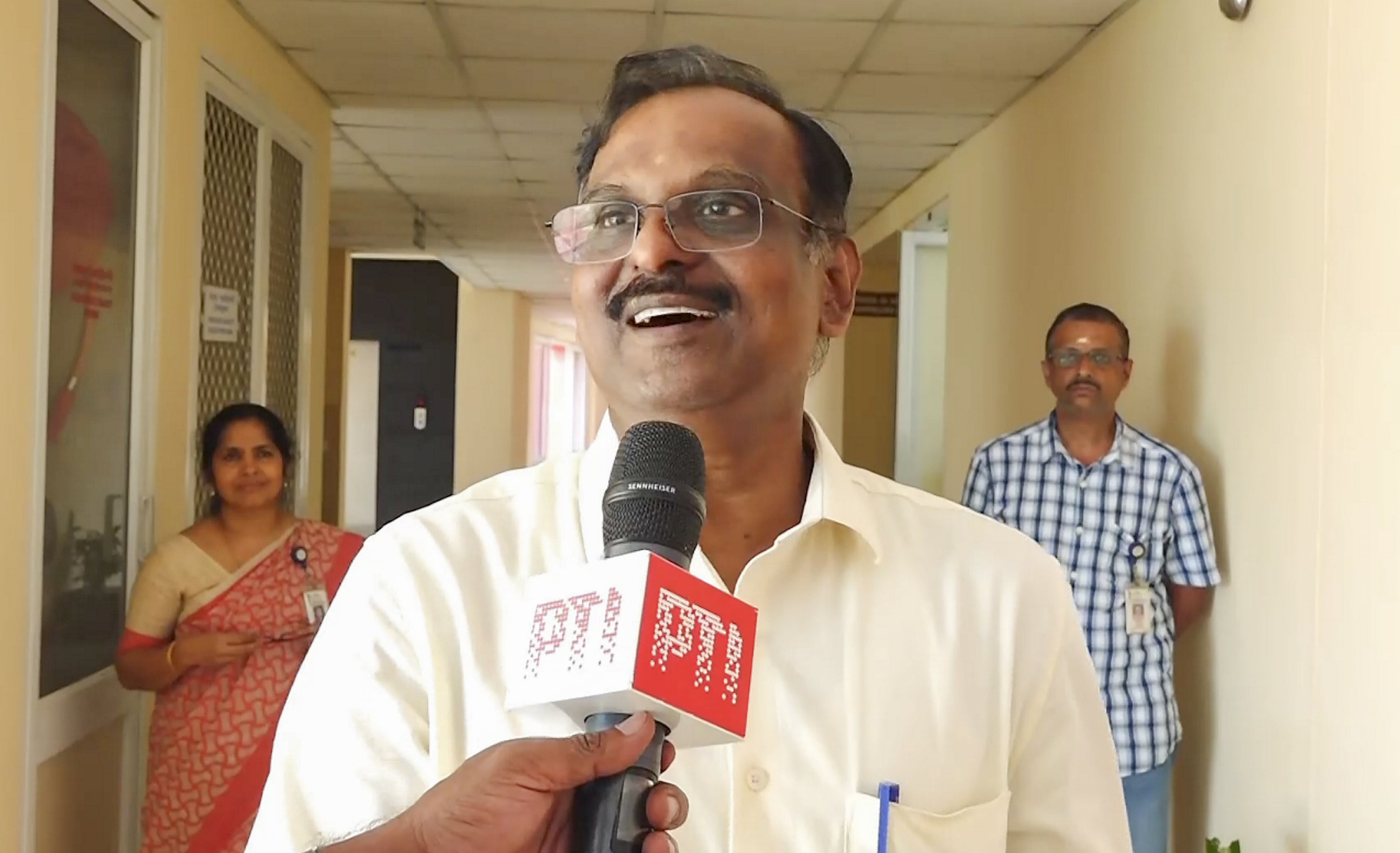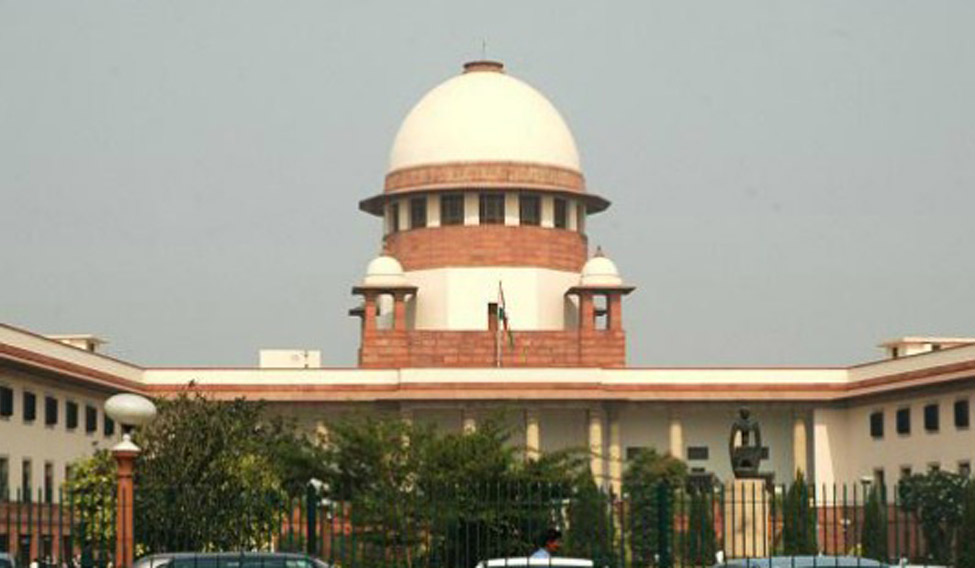Bengaluru (PTI): V Narayanan has assumed charge as the chairman of ISRO, replacing S Somanath, the Space Agency said.
In a statement, the ISRO said, "Dr V Narayanan, Distinguished Scientist (Apex Grade), assumed the charge of Secretary, Department of Space, Chairman, Space Commission and Chairman, ISRO on the afternoon of January 13, 2025."
Prior to this, Narayanan served as the Director of ISRO's Liquid Propulsion Systems Centre (LPSC), a key facility responsible for the development of propulsion systems for launch vehicles and spacecraft.
He also played a pivotal role as the Chairman of the National Level Human Rated Certification Board (HRCB) for the Gaganyaan programme, India’s ambitious human spaceflight mission.
A veteran scientist, Narayanan joined ISRO in 1984 and has contributed significantly to India's space missions over the decades. He became the Director of LPSC in January 2018, cementing his reputation as a leader in rocket and spacecraft propulsion technologies.
Narayanan hails from a humble background and is an alumnus of IIT Kharagpur, where he completed his M.Tech in Cryogenic Engineering and PhD in Aerospace Engineering. Awarded the Silver Medal for securing the first rank in his M.Tech programme, he has also received the Distinguished Alumni Award in 2018 and the Life Fellowship Award in 2023 from IIT Kharagpur.
Before joining ISRO, Narayanan worked for a brief period at TI Diamond Chain Ltd., Madras Rubber Factory, and Bharat Heavy Electricals Limited (BHEL) at Trichy and Ranipet.
Over his 40-year tenure at ISRO, including seven years as Director of the Liquid Propulsion Systems Centre (LPSC), he has made groundbreaking contributions to India's space programme.
"When India was denied the cryogenic technology for GSLV Mk-ll vehicle, he designed the engine systems, developed necessary software tools, contributed for establishing the necessary infrastructure and test facilities, testing and qualification and completing the development of Cryogenic Upper Stage (CUS) and making it operational," ISRO said.
As project director of the C25 cryogenic project for the LVM3 vehicle, he led the development of the C25 cryogenic stage powered by a 20-tonne thrust engine, which was crucial for the successful maiden launch of LVM3. His M.Tech thesis and PhD work were instrumental in the development of these systems, making India one of only six countries with indigenous cryogenic technology.
Narayanan played a vital role in India’s lunar missions. For Chandryaan-2 and 3, he led the development of the L110 Liquid Stage, the C25 Cryogenic Stage, and propulsion systems that enabled the spacecraft to reach the Moon’s orbit and achieve a soft landing.
For the PSLV C57/Aditya L1 mission, he oversaw the realisation of the second and fourth stages, control power plants, and the propulsion system that helped position the spacecraft in a halo orbit at L1, making India the fourth country to successfully study the Sun.
Narayanan has been instrumental in the Gaganyaan programme, contributing to the human-rating of the LVM3 vehicle and the development of various systems, including cryogenic stages, life support systems, and propulsion systems for the crew and service modules. He also chaired the Gaganyaan Certification Board, overseeing the certification process for multiple systems.
Under his leadership, ISRO has advanced the development of next-generation propulsion systems, including a 200-tonne thrust LOX-Kerosene semi-cryogenic rocket system, a 110-tonne thrust LOX-Methane engine, and electric and green propulsion systems for spacecraft.
He has also guided the propulsion systems for upcoming missions such as the Venus Orbiter, Chandrayaan-4, and the Bharatiya Antariksha Station (BAS).
He is a Fellow of the Indian National Academy of Engineering, Aeronautical Society of India, Astronautical Society of India, and other esteemed organizations.
Let the Truth be known. If you read VB and like VB, please be a VB Supporter and Help us deliver the Truth to one and all.
New Delhi (PTI): Observing that a liberal approach must be adopted while construing beneficial provisions, the Supreme Court has granted disability pension to an army man who was relieved from the service as he was suffering from "Schizophrenia."
The top court noted that the decision of the authority to discharge a serviceman is based on a medical report which is devoid of reasons.
A bench of Justices Abhay S Oka and N Kotiswar Singh said the requirement to give reasons by the Medical Board is crucial, critical, decisive and necessary for granting or denying disability pension.
The apex court said it is not a mere formality, but a necessary material based on which the pension sanctioning authority has to decide about the grant or refusal of disability pension.
"Accordingly, in our opinion, if the serviceman is discharged from service or denied the disability pension on the basis of a medical opinion which is devoid of reasons, it would strike at the root of the action taken by the authority, and such action cannot be sustained in law.
"We, therefore, hold that if any action is taken by the authority for the discharge of a serviceman and the serviceman is denied disability pension on the basis of a report of the Medical Board wherein no reasons have been disclosed for the opinion so given, such an action of the authority will be unsustainable in law," the bench said in its judgement dated May 7 which was uploaded today.
The top court was hearing a plea filed by an army man challenging an order passed by the Armed Forces Tribunal, Regional Bench, Kochi, by which the appellant's claim for grant of disability pension was denied.
The petitioner was enrolled in the Indian Army on November 17, 1988, as a sepoy, and after serving more than nine years, he was discharged from service on being diagnosed with Schizophrenia.
His discharge on medical invalidation was based on the opinion of the Invalidating Medical Board held on March 30, 1998, at the Command Hospital, Western Command, Chandimandir which found that the onset of the invalidating disease was in August 1993 during which period the appellant had served in a peace station and that the disability was neither attributable to nor aggravated by military service and the said disease of the appellant was constitutional in nature and not connected with the service.
In its judgement, the top court said a much more liberal view needs to be adopted while dealing with the cases of discharge of servicemen from service on account of suffering from Schizophrenia as they may face several impediments and difficulties in proving the causal connection of the said disease with the military service.
"We must appreciate the fact that the provisions for grant of disability pension are in the nature of a beneficial scheme intended to provide succour to servicemen in hard times who have been discharged from service after having served the nation with dedication. Accordingly, a liberal approach must be adopted while construing such beneficial provisions," the bench said.
The apex court said in cases where the serviceman himself has not applied for discharge but has been discharged by the authority, the onus of proving the disability and grounds for denying the disability pension would lie heavily on the authority.
"Since it is the statutory requirement that the opinion of the Medical Board is to be the basis of the discharge, in our view, if the opinion of Medical Board is devoid of reasons, the act of the authority based on mere opinion sans reasons can certainly be questioned.
"According to us, if the decision of the authority to discharge a serviceman is based on a medical report which is devoid of reasons, which are required to be given as also mandated by rules as discussed above, such an act of the authority specially when it denies any post discharge benefit will be rendered invalid in the eyes of law," the bench said.
The court said it has noted that in the entire original record produced, there is no material for concluding that the appellant was suffering from Schizophrenia, which is in the nature of a constitutional personal disorder.
"Accordingly, we hold that the order of discharge of the appellant and denial of disability pension to him based on a medical opinion without providing full reasons to support the opinion cannot be said to be valid.
"The question which would arise for consideration now is whether we should remit the matter to the Medical Board at this stage for reconsideration in the light of our observations made above. We, however, feel that adopting the aforesaid course of action at this stage after about 27 years of the appellant being invalided from service on May 18, 1998, would not be in the interest of justice," the bench said.
The top court refused to disturb the order of discharge of the army man on the ground of medical invalidity due to Schizophrenia, but directed the authorities that he be granted disability pension with immediate effect with all attending benefits, as per rules.
However, the appellant will not be entitled to any arrears of invalid pension, except for the last three years, it said.


